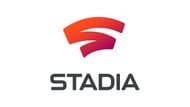It's hard to believe that the Xbox and PlayStation brands have been locked in a better (well, "bitter" might be a bit of a stretch) rivalry for over twenty years. Since the debut of the original Xbox in 2001, Microsoft and Sony have battled to determine who has the better video game platform.
Oh, and to make money, too. Because that's kind of the bottom line for companies like those. Obviously.
Xbox has a leg up... but it took a while
Things have changed significantly in the industry since the OG Xbox and the PlayStation 2. Not just in the hardware, either. In fact, you could go as far as to say their home consoles and their specs are one of the few things the two company's have in common.
So when we're comparing Xbox and PlayStation in 2024, we're not talking about the Xbox Series X vs the PlayStation 5. We're talking about the experience that comes with using either brand. What makes gaming better on an Xbox/Microsoft platform than on PlayStation?
While there is certainly an argument to be made to the contrary, today we're going to take a look at five ways Xbox has a leg up on PlayStation. I look forward to your rational, well-thought-out comments.
5) The studios

Trust me. The humor in "this major corporate behemoth's gaming ecosystem is better than this other's because it acts more like a corporate behemoth than they do" is not lost on me. But, for our argument here, it's actually a pretty valid point.
Even in its most formative years, success in the gaming industry was aimed squarely at exclusivity. You bought a NES because that was the only way to play Super Mario Bros. You picked up the original PlayStation just to play Final Fantasy VII. Aliens vs Predator was the reason you bought an Atari Jag... Okay, that one's reaching a bit.
While Microsoft has insisted that, following their acquisition of Activision Blizzard, that games like Call of Duty will still be available on other platforms... Come on. We've already seen the releases of Starfield and Diablo IV, and neither of those are hitting PlayStation any time soon.
Like it or not, Microsoft now has a bunch of the heavy hitters on their team. And, even if these games aren't Xbox-exclusive, this next point makes that all but moot anyway.
4) Game Pass

Obviously, at this point, Microsoft hardly has the monopoly on subscription gaming services. Hell, we're surprised every publisher doesn't have a service of their own.
Not gonna lie, though—I'd totally drop a bit of monthly cash for a Devolver Digital service. Tee me up some Develover+ already, guys!
So, yeah, PlayStation's got PlayStation Plus, Ubisoft, and EA have their things, I'm frankly shocked Sega doesn't have one by now, if I'm being perfectly honest. But Xbox has what those other publishers don't.
Yeah, you're probably going to be able to play Call of Duty: Modern Warfare 6: Ghosts of Your Mom or whatever on PlayStation. But you'll have to pay full price for it. Or, you can subscribe to Game Pass and play it on Day One.
I know there's some legal finagling involved with streaming and all that as part of the agreement to get the governments of the world to approve Microsoft buying Activision. But, you can't tell me that owning AB doesn't make Game Pass a much more tempting option than any other service.
"Well, I play games on a PC and dur dee dur dee dur," you say, and good for you. Buckle up, Chuckles—this involves you too.
3) Play anywhere (eh, sort of)

You remember a number of years ago how any company that was even seemingly remotely connected to video games was either buying companies that dealt with cloud computing and online streaming or forming their own divisions to do it themselves? Well, if you don't, that's what happened. Try and keep up.
Xbox might be Microsoft's current sexy arm candy, but it's the PC that brought them to the dance in the first place—and they haven't forgotten that.
Microsoft has a number of different options for Game Pass. There's two that cost $9.99 a month each. One for your PC which is pretty good, and one for your Xbox console, which isn't as good. But, honestly, you might as well just get Ultimate. That's $16.99 a month and gives you access to... oy vey, so much stuff.
Ultimate gives you access to the entire Game Pass library via PC, your console, your phone, your tablet, your toaster, probably. Your game saves carry over, too. So you can be playing Yakuza: Like a Dragon on your PC for a while, then play that same save file by streaming it on your mobile device.
There are also a number of games you can buy through the Microsoft/Xbox store, games that are not on Game Pass, that will allow you to do the same. After all, you bought 'em. Why not play them wherever you want?
2) Becoming platform agnostic

So, Google Stadia. It's kind of a punchline in gaming circles now. Actually, it was even when it existed. Let's not kid ourselves, Google had no idea what they were doing. The concept behind Stadia, however, was not without merit. I'd go as far as to say... it was pretty cool.
The entire concept behind Stadia was that you didn't need an expensive piece of equipment to play your games. Well, no, that's not true. You did need an expensive piece of equipment, but it didn't have to be an expensive piece of equipment that just played games.
Here's an example: I used Stadia for probably the last year of its existence. I bought a copy of Cyberpunk 2077 on it (that title is basically my gaming Beatles' White Album—I'll buy it on just about anything) and it ran... okay-ish on my PC web browser, and I even got it to work pretty well on my phone.
I also had an LG TV with a Stadia app on it and.... hooooo boy. Cyberpunk 2077 ran like a dream on that. I began to wish I could play my Xbox and PlayStation libraries the same way. No hardware, other than a Bluetooth controller, was needed.
So what does this have to do with Xbox? Well, with Microsoft putting less emphasis on hardware, they're moving in the same direction Google was with Stadia. The difference? Microsoft knows what they're doing.
Before you know it, Xbox won't be the name of a gaming console. It'll be the name of a gaming service you can pretty much play anywhere, on anything.
1) Phil Spencer

The current CEO of Microsoft Gaming, Phil Spencer has been with the company his whole career. While he began with Microsoft as an intern in 1988, he eventually joined the Xbox team in 2001, just as it was beginning. Phil was known as an avid gamer within the company, so it's no surprise he ended up where he did.
When representatives from Sony or Nintendo come out during a press conference, they certainly do a fine job. But Spencer is the one executive in the gaming industry that really feels like he lives and breathes the gaming world.
In 2018, Spencer shared the stage at the Game Awards with then-Nintendo of America President Reggie Fils-Aimé and then-PlayStation head honcho Shawn Layden.
All three men did great. But, while Reggie was clearly the most comfortable with public speaking (obviously, his body was ready), it's in this writer's opinion that Phil Spencer seemed the most at home at the show. And he's shown that to be true over the years since, making great decisions that have benefited Xbox fans, developers, and even Microsoft employees.
Basically what we're saying is, as long as Phil Spencer is behind the wheel at Xbox, they're going to have a leg up on everyone else in the business.
